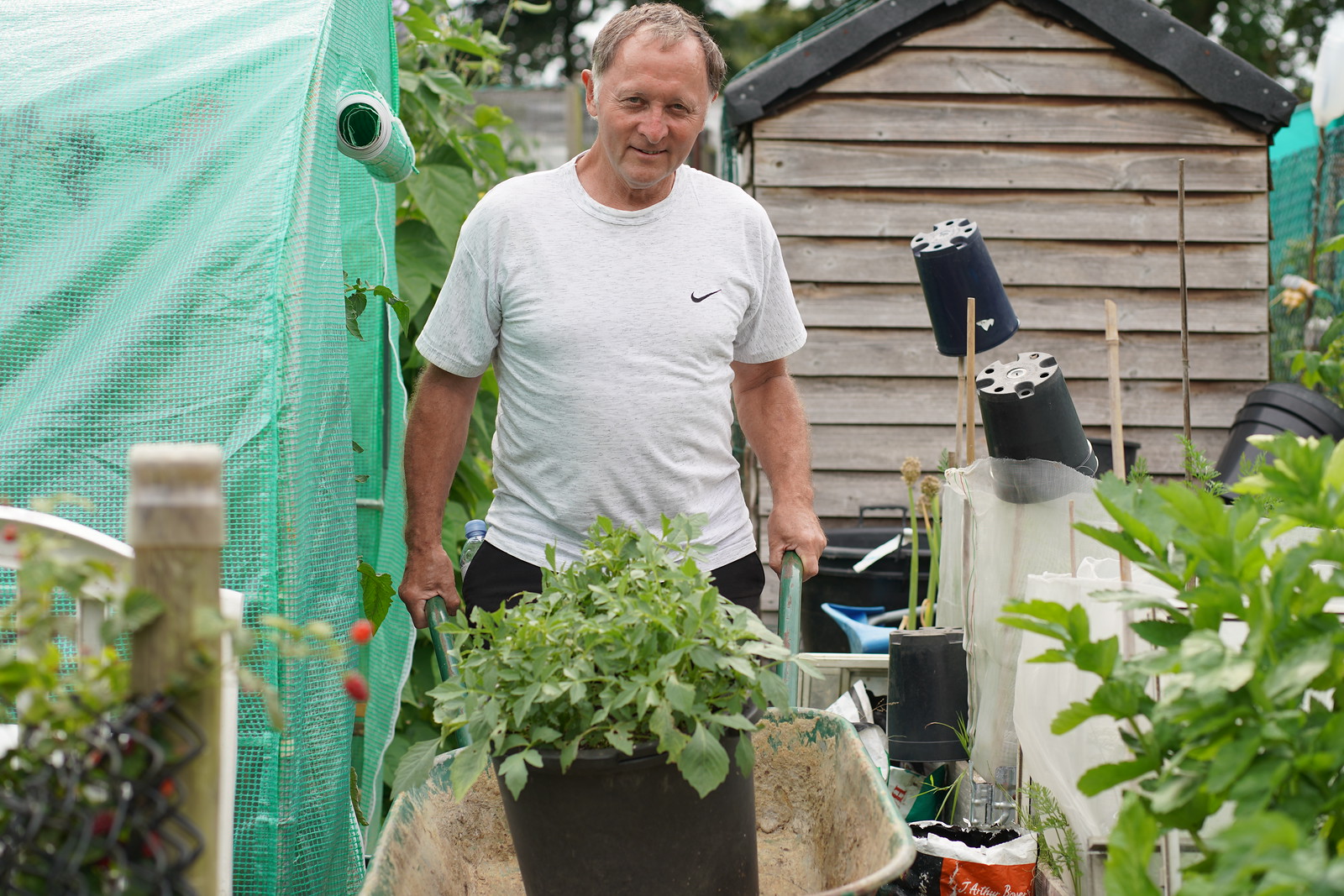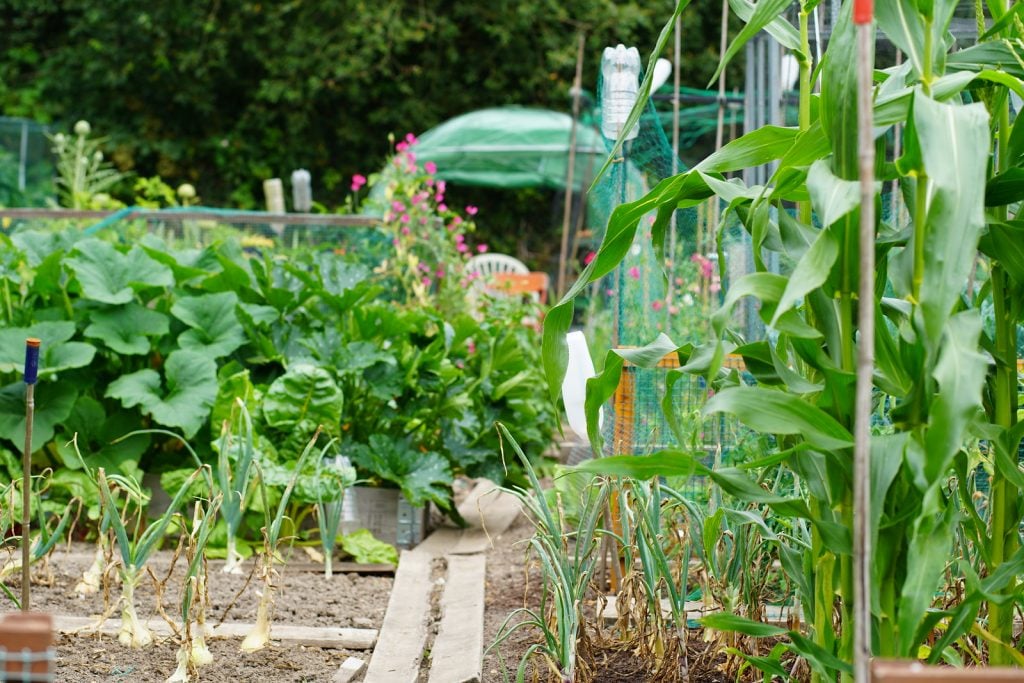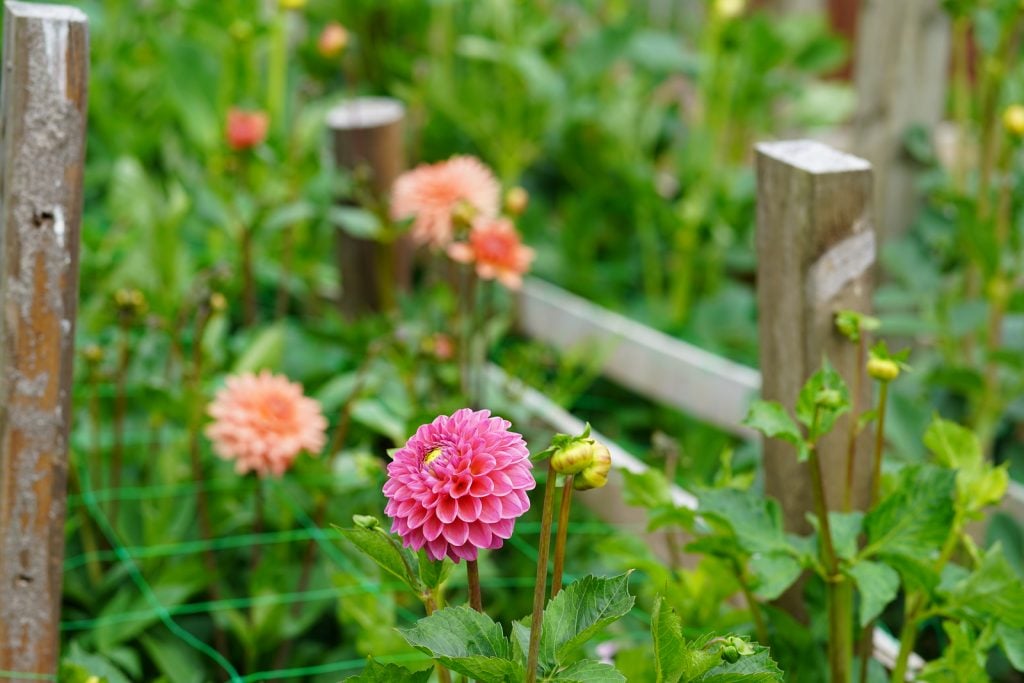Top tips for new allotment holders

Thinking about taking up an allotment this summer? Caring for a plot can be quite a commitment but once you have made your preparations, you are able to enjoy the fruits of your hard work and get great satisfaction from your efforts. To help you get started, Dave Burton at Randalls Allotments shares his top tips on how to begin.
Getting started
Once you start digging and clearing your plot, and when you have a small area ready, get something you like and that will grow well at that time, put in the ground, so that as you are working on the rest of the plot you can watch your first area grow your produce. Keep that going and you will realise it is all worthwhile.
Make a plan on what you would like to grow, what you like to eat, and where on the plot you could grow the plants. Try to add in a few flowers which will encourage pollinators in to do their work on your fruit and vegetables as well. There will be some failures, which will allow you to learn about your plot and which crops will grow better than others.

Keeping the cost down
The idea is to grow your own and avoid the chemicals that are used by the farms and nurseries, but not to spend a fortune in the process. Recycle timber and other waste products to make frames or give protection to your crops, buy your seed when the garden centres have their offers on at the end of the summer. Keeping the cost down gives even more pleasure to the enjoyment.
Little and often
Talking of seed, sow it thinly when you place it in the rows, it will make it more economical, but also save time when they are growing as there will be less thinning out to be done, allowing more space between individual plants. When thinning your seed rows, consider delaying a couple of weeks to allow some growth as baby vegetables can be used in salads, and are very tasty. Don’t grow too many of one thing, there is no point in having 30 lettuce mature all at once, by the time you have eaten three or four of them, the rest will have gone to seed and not edible, sow little and often, particularly for salad crops.
Don’t sow carrots or parsnips on ground that has had fresh manure or compost added, it will make the roots “fork” causing multiple roots on the same plant, which makes preparation in the kitchen much more difficult!

Weed, weed, weed
Keep on top of the weeding, making sure they don’t get to the mature seed stage as you will then get many more next year. Be aware that many weeds mature their seeds very quickly. Bittercress is a good example as you will probably spot it when it has its white flowers, but if you missed the first flowers, it is probably popping seed already. Weeding will need to be done several times a year in the same area, they will keep coming as many of their seeds are wind borne, giving you no control over them.
Create compost
Try to have a small area to produce compost, adding kitchen waste from your home. It can be added in the autumn when the areas become vacant after crops have finished, either dug into the ground, or just put on the surface to let the worms and the weather do the hard work and take it underground for you. A basic square made of pallets secured on end will be enough, encouraging wildlife, but also getting the microorganisms to work on the contents and then distributed, allowing healthy conditions for your produce.
Be inspired
Have a good look at the other plots on the site, talk to other growers who might be able to give you some local and experienced advice, which may help you to get better crops. Look at the things used on the plots, maybe raised beds, netting, greenhouses or polytunnels to make areas of your plot more protected from predators and the weather. Not all sites allow buildings or greenhouses, so make sure you check before you buy or erect anything.
For more inspiration for your new plot, visit one of the 51 allotment groups opening for the National Garden Scheme in 2024.
If you enjoyed this content please consider making a donation to help us continue to support our nursing and health beneficiaries.

















